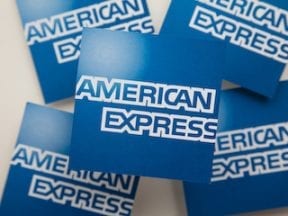The payments industry is difficult to understand, even for practitioners. My 3-part series on credit card processing hopefully demystified the jargon, pricing models, and fees.
This post will explain merchant accounts.
It’s normal to be confused about payment processing, gateways, and merchant acquiring. The industry arguably relies on confusion to levy charges that may otherwise be contested.
As with card processing, understanding how merchant account fees are created and charged will help you choose the best merchant account provider for your business.
Merchant Acquiring
“Acquirer,” “merchant acquirer,” and “acquiring bank” refer to the same thing: a financial institution that has been registered and approved by one or more of the card brands (Visa, Mastercard, Discover, American Express) to accept card payments on behalf of a merchant.
Many acquirers are banks, but not always. Some non-banking financial institutions have become acquirers, and some independent organizations that work on behalf of acquirers call themselves acquirers.
Many acquirers are banks, but not always.
An acquirer can perform multiple functions. Some perform all of the following; others only a few.
- Marketing and sales. Acquirers are businesses with customers — merchants, in this case. Acquirers market their services and engage in sales activities to sign up merchants.
- Underwriting. Acquiring banks essentially provide loans to their merchant customers. The banks must evaluate the borrower and implement risk-mitigation strategies, as with any loan.
- Create and manage merchant accounts. A merchant account is not a savings or checking account. Rather, it’s a special type of bank account that temporarily holds the proceeds of credit card and debit card payments.
- Interact with payment processors. This function creates much confusion. An acquirer is not necessarily a payment processor. However, acquirers can offer many services, including payment processing. For example, Bank of America Merchant Services offers both merchant accounts (acquiring) and payment processing. Some acquirers have partnered with multiple providers (e.g., processors, payment gateways, point-of-sale equipment) to offer a single solution for merchants.
- Authorize transactions. Merchant acquirers also participate in authorizing (approving and declining) payment transactions. Although other organizations also approve transactions (processors, card brands, and issuing banks), the acquirer has the final approval. Here’s how it works.
When a customer purchases with a credit card, the payment gateway (provided by the payment processor) sends the transaction to the card brand (e.g., Visa). Before that, however, the processor typically checks for fraud and provides initial approval. The card brand verifies the transaction (again, usually a fraud check) and, if approved, passes to the issuing bank (provided the credit card to the paying customer), which verifies the cardholder’s account has sufficient funds. If yes, the issuer approves and then notifies the merchant acquirer. The acquirer, again, has the final say: deposit funds into the merchant’s account or decline the transaction.
The acquirer carries the financial risk. If it approves a transaction that later turns out to be invalid (usually, a chargeback), the acquirer must refund the issuing bank, which will then reimburse the cardholder. Deposits to merchant accounts come from the acquirer, not from the issuing bank. Thus deposits to merchant accounts are like short-term loans from the acquirer to the bank.
- Arbitrate disputes. When a merchant fails to provide the customer with the goods or services as promised, it’s the acquirer who is financially responsible. This is true for chargebacks and for merchants that go out of business (or disappear) without fulfilling orders. For chargebacks, the acquirer will withdraw funds from the merchant’s merchant account, if the merchant has not vanished. But sometimes chargebacks are levied incorrectly. Customers can be wrong or fraudulent. Accordingly, acquirers offer dispute management, arbitration, and resolution services.
Merchant Accounts
Card brands will not allow anyone to accept credit card payments without a merchant account.
A merchant account temporarily holds the proceeds of credit and debit card transactions. It is, again, a type of bank account, but it’s not a savings, checking, or money-market account. A merchant account cannot be used to pay expenses, fund payroll, and so on.
After it approves a credit or debit card payment, the acquirer will deposit the proceeds, minus the processing fees (interchange, assessments, and markup) into the merchant account. Each acquiring bank has its own deposit schedule. Some acquirers make deposits in near real-time. Others take up to three days or longer.
Merchants can usually check their accounts within 24 hours of a sale and confirm that they are scheduled to receive the proceeds and transfer them into a separate business account.
Where do acquirers get the money to make deposits into merchant accounts? It’s via a process called “clearing and settlement” — a nightly reconciliation among issuing and acquiring banks that owe each other money. Acquirers owe issuers for chargebacks; issuers owe acquirers the proceeds of the day’s sales.
Why can’t business owners deposit credit and debit card proceeds directly to their checking accounts? Without separate merchant accounts, it would be difficult (and a legal nightmare) for the issuing banks and card brands to withdraw funds and fines from a regular bank account in the event of chargebacks or poor merchant behavior.
Thus merchant accounts mainly benefit the acquiring and issuing banks, who can hold a merchant’s funds to protect against chargebacks and other risks.
Types of Merchant Accounts

Stripe is an example of a payment facilitator, which creates one master merchant account and then assigns individual businesses to sub-accounts.
While acquirers offer many types of merchant accounts based on risk, transaction volume, access to funds, and pricing, there are two primary categories: dedicated and aggregated (shared).
Dedicated merchant accounts serve only one business with one unique account number. Leading providers of dedicated merchant accounts in the U.S. include FIS (including Worldpay, a recent acquisition), Chase Merchant Services, Fiserv (formerly First Data), Bank of America Merchant Services, and Global Payments (including TSYS, an acquisition).
Aggregated merchant account providers are technically payment facilitators. Examples include PayPal, Square, and Stripe. Payment facilitators create one master merchant account with an acquirer and then assign merchants to sub-accounts. As with dedicated merchant accounts, the rules for payment facilitators are created, maintained, and enforced by the card brands.
Payment facilitators have become popular for a few reasons.
- Cost savings. Payment facilitators set up and maintain just one merchant account. The proceeds of every merchant’s transactions are deposited into this account. Payment facilitators can pass those savings to their merchant customers.
- Quicker approval. Clients of payment facilitators undergo less scrutiny and underwriting than for dedicated accounts. Participating merchants get up and running quickly with fewer obstacles, less paperwork, and simpler contracts.
- Simple fees. Merchants of payment facilitators are almost always charged flat-rate transaction fees, which are easy to understand and predict. The disadvantage is that flat-rate fees can be more expensive overall. (I addressed processing fees in “Part 2” of my previous series.)
- Fewer restrictions. Clients of payment facilitators generally avoid long-term contracts and excessive early-termination fees. Merchants can take their payment-acceptance business elsewhere (and quickly), if necessary.
Given the advantages of payment facilitators, why would any merchant want a dedicated merchant account? The answer has to do with fees and services. Payment facilitators offer merchants an easy, cost-effective way to get started. However, for merchants with higher transaction volumes (more than $4,000 per month, approximately), flat-rate pricing will likely be more expensive than other pricing models, such as interchange-plus.
Here are some advantages of dedicated merchant accounts:
- Pricing. Many dedicated merchant account providers support the interchange-plus pricing model, which generally offers the best and most transparent pricing for payment processing.
- Quicker withdraws. The underwriting and risk-mitigation policies are much stricter for dedicated merchant accounts. Thus acquirers usually allow merchants to withdraw funds from dedicated merchant accounts much earlier than payment facilitators — typically 2 days for dedicated accounts versus four to seven days (usually) for payment facilitators.
- Better service and support, potentially. One would expect that dedicated merchant accounts receive a higher level of service from the acquiring banks. However, I’ve seen excellent service from payment facilitators and horrific service from acquirers that provide dedicated accounts.




